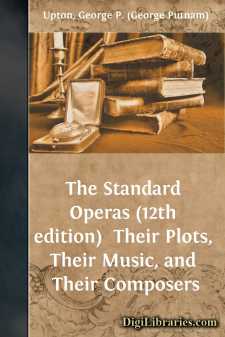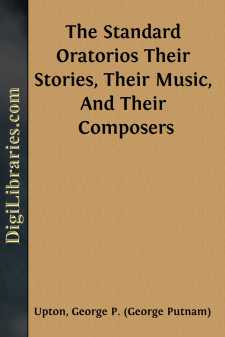Categories
- Antiques & Collectibles 13
- Architecture 36
- Art 48
- Bibles 22
- Biography & Autobiography 813
- Body, Mind & Spirit 142
- Business & Economics 28
- Children's Books 15
- Children's Fiction 12
- Computers 4
- Cooking 94
- Crafts & Hobbies 4
- Drama 346
- Education 46
- Family & Relationships 57
- Fiction 11828
- Games 19
- Gardening 17
- Health & Fitness 34
- History 1377
- House & Home 1
- Humor 147
- Juvenile Fiction 1873
- Juvenile Nonfiction 202
- Language Arts & Disciplines 88
- Law 16
- Literary Collections 686
- Literary Criticism 179
- Mathematics 13
- Medical 41
- Music 40
- Nature 179
- Non-Classifiable 1768
- Performing Arts 7
- Periodicals 1453
- Philosophy 64
- Photography 2
- Poetry 896
- Political Science 203
- Psychology 42
- Reference 154
- Religion 513
- Science 126
- Self-Help 84
- Social Science 81
- Sports & Recreation 34
- Study Aids 3
- Technology & Engineering 59
- Transportation 23
- Travel 463
- True Crime 29
George P. (George Putnam) Upton
George Putnam Upton (1834–1919) was an American music critic, journalist, and author known for his significant contributions to music literature. He worked for the "Chicago Daily Tribune" for over 50 years, serving as music editor and critic, shaping the city's cultural scene. Upton authored several influential books on classical music, including "The Standard Oratorios" and "The Standard Operas," which introduced many American readers to European musical traditions. His writings were known for their accessibility, and he played a key role in popularizing classical music in the United States.
Author's Books:
Sort by:
AUBER. Daniel François Esprit Auber, one of the most prominent representatives of the opera comique, was born at Caen, in Normandy, Jan. 29, 1784. He first attracted attention in the musical world by his songs and ballads, written when a mere boy. Young as he was, they were great favorites in French and English drawing-rooms, and their success diverted him from his commercial intentions to that...
more...
THE ORATORIO. The oratorio in its modern form is a musical setting of a sacred story or text in a style more or less dramatic. Its various parts are assigned to the four solo voices and to single or double chorus, with accompaniment of full orchestra, sometimes amplified by the organ. Like the opera, it has its recitative, linking together and leading up to the various numbers. The origin of the word...
more...



